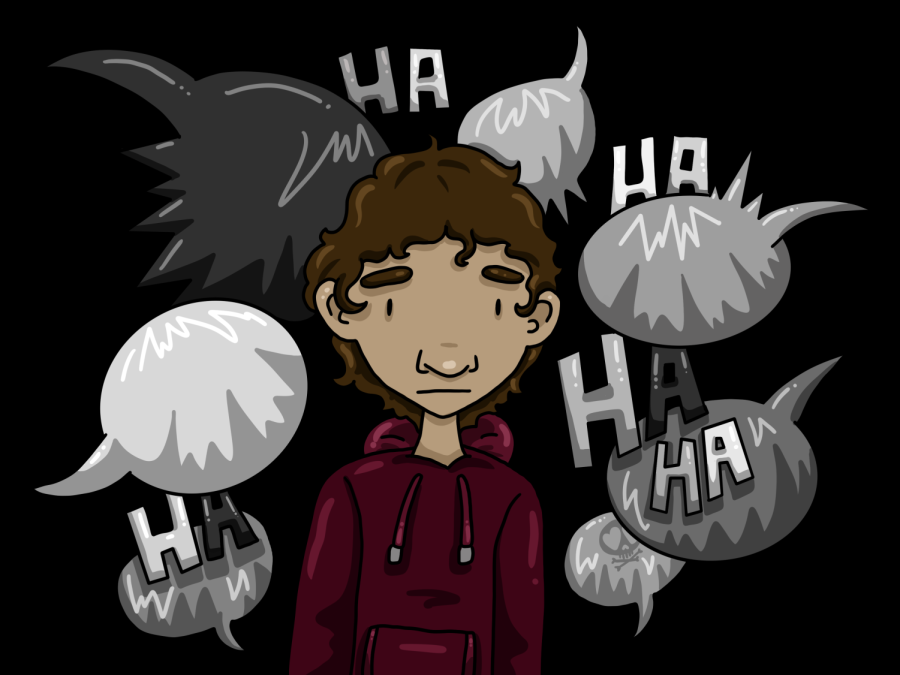Step up to support peers’ mental health
Regardless of intent, joking about mental health can be harmful in the long term, and students should be careful about what they say and create an uplifting environment.
February 17, 2023
Despite the calls for a more effective system of supporting students’ mental health, throughout U-High’s hallways, groups of students can often be heard making off-hand remarks like, “This class makes me want to kill myself,” or “That outfit makes me look like I’m anorexic.”
Joking about mental health or using it as a way to exaggerate a point may feel harmless at the moment. However, with recent data from the Centers for Disease Control and Prevention showing that depression and anxiety in children are increasing, students’ words are undermining the severity of the topic.
While the administration ultimately bears most of the responsibility to ensure Lab’s environment is not harmful to students’ emotional wellbeing, students must work in tandem to create a culture that uplifts their peers’ mental health rather than mocks it.
Although it is tempting to blow off Wellness Workshops and assemblies promoting mental health in favor of doing homework or watching Netflix, if students do not utilize the resources being offered and voice what more is needed, no substantial change will occur. It is only through demonstrating investment that students can emphasize the importance of their own mental wellbeing.
A significant recent opportunity students have been given is to take an active role in improving the discussion surrounding mental health by applying to become a Peer Mental Health Partner. Those selected will receive specific training to identify and manage mental health challenges in their peers while also reducing stigma. Internal efforts are often more effective, as students are able to have personal knowledge of the challenges their peers face.
As students, it is imperative that we assess the culture our peers perpetuate and put in real work to sculpt it to our liking. Using language that portrays serious conditions as a joke trivializes and passes judgment on the real hardships that many students face. Mental disorders are much more than just hyperbole, and they must be viewed as such.
There are limits to the amount of control students can have of Lab’s overall culture, but sparking serious conversations about mental health is one area they can improve.
This burden does not fall only on the shoulders of students. As students work on their part of the culture shift that needs to occur, the administration must do the same.
While some efforts like the mental health assemblies have been made, the administration has yet to genuinely listen to and address students’ needs in this area.
Including mental health days as excused absences, instituting homework policies and pushing back the start of the school day are all significant starts, but there is still a long way to go in improving students’ mental health. As U-High seeks a new principal, it’s critical that mental health is among the priorities and that the person has demonstrated experience understanding and supporting teenagers’ mental health. What U-High really needs is to become a place where students can be confident their concerns are being addressed as they voice them.
Ultimately, students and the administration must work together to ensure that the conversations regarding mental health at U-High address the topic as it is: a serious issue that is negatively impacting nearly all of us.




























































